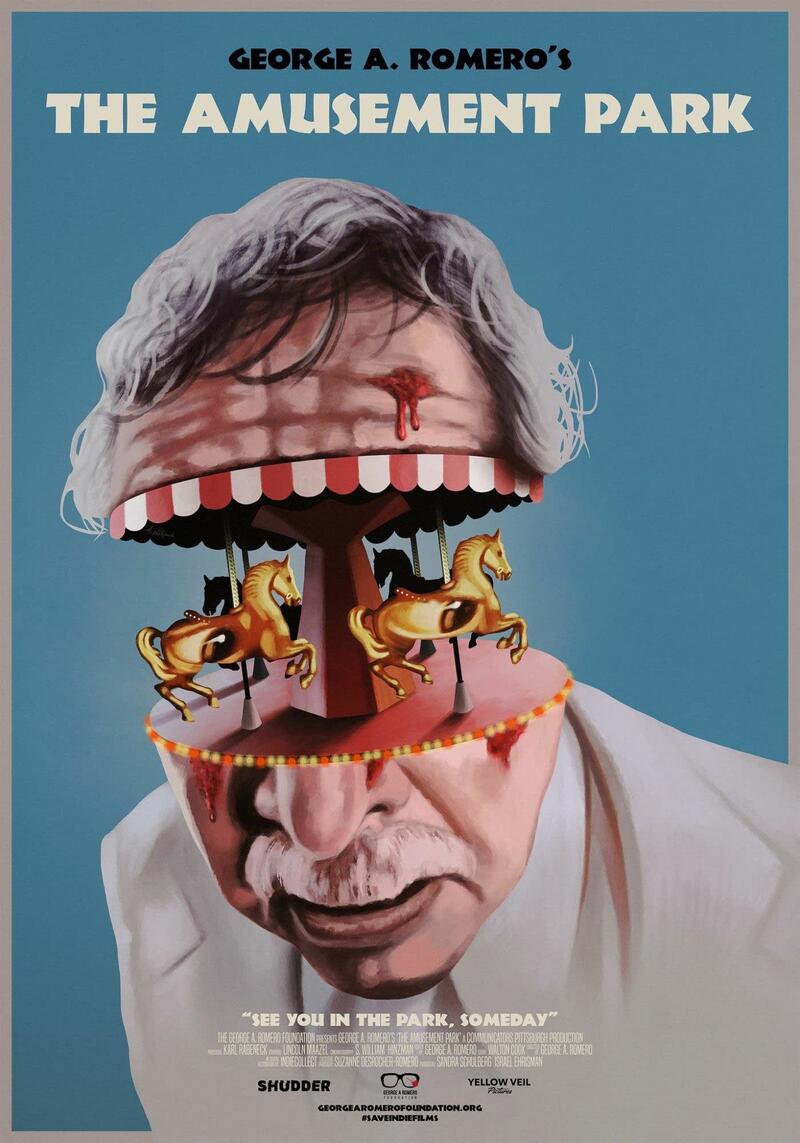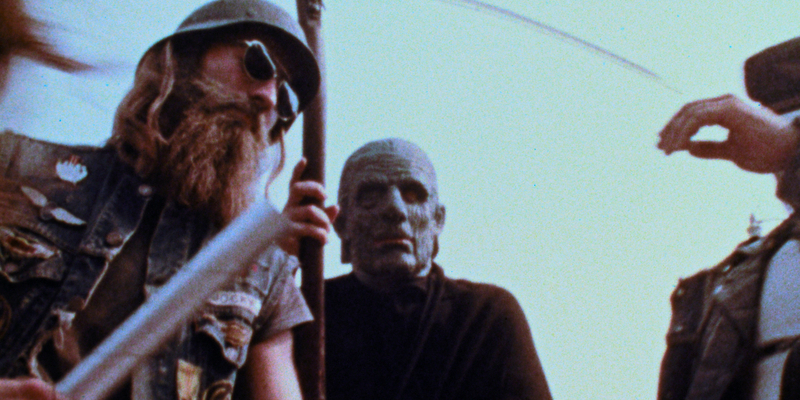
Review by
Eric Hillis
Directed by: George A. Romero
Starring: Lincoln Maazel, Harry Albacker, Phyllis Casterwiler, Pete Chovan, Sally
Erwin

Today, an indie filmmaker just has to make a barely competent and mildly
successful horror movie before Hollywood comes calling. That wasn't always
the case, and in the decades bridging the death of Universal Horror and
the success of The Exorcist, Hollywood didn't see the genre as commercially viable. The late
George A. Romero was cursed with bad luck, and in the case
of Night of the Living Dead, bad timing. Had he made his debut a decade later, when the likes of
John Carpenter, Wes Craven and Tobe Hooper were bringing American horror
back to the mainstream, he would likely have been offered the sort of
budgets those filmmakers were afforded after their indie breakouts. But
while Night of the Living Dead proved a huge hit on its
release in '68, Romero didn't see a penny of its profits thanks to a
copyright oversight.
This meant that until Dario Argento arrived with a suitcase full of lira
to fund 1978's Dawn of the Dead, Romero was the very definition of a jobbing blue collar filmmaker,
taking work where he could find it. In 1973 he found it via the unlikely
source of Pittsburgh's branch of the Lutheran Church, who commissioned him
to make an hour long movie highlighting the struggles of the elderly. The
result, The Amusement Park, horrified the Lutherans so much that the movie was instantly shelved.
Now, thanks to the George A. Romero Foundation, the film has been restored
and released through horror streaming site Shudder.

Romero was always known for loading his films with political allegory, but
here the message is front and centre. America is failing its elders, who
at this period were the very people who had fought in World War II. Their
reward, it seems, is to be cast aside from an uncaring society, viewed as
a nuisance. The metaphor of Logan's Run is itself the text
here. Life ends at 60. The rest is a prelude to Hell.
The movie begins with its leading man, Lincoln Maazel (whom Romero
fans will know from his later role as the grandfather in
Martin), delivering a speech to camera outlining the point of the movie we're
about to watch. He's walking through a closed amusement park, soaked with
rain and grimly unappealing in that distinct 1970s way.

Then we're into the narrative section of the film as Maazel, dressed up in
a white linen suit, enters a stark white room where another version of
himself, beaten and bruised, sits sobbing on a chair. "Won't you come out
into the world?" the freshly pressed Maazel asks his battered alter-ego.
"No, you won’t like it our there," is the reply. Maazel ignores the
warnings and opens the door, emerging into a bustling fairground.
It's from here on in that Romero's film turns into the stuff of
nightmares. Immediately we see old people being ripped off by a ticket
salesman, who cheats them out of their prized possessions for the price of
a few tokens. Ignorant youngsters barge into brittle old folks, knocking
them to the ground. A snob asks waiters to turn his table around so he
doesn't have to look a group of pensioners in the eye. Maazel is accused
of being a "degenerate" for daring to talk to a child. He witnesses a
dodgem crash but his testimony is discounted because he wasn't wearing his
glasses. In a precursor to the climax of Dawn of the Dead, Maazel is set upon by three bikers and beaten to a pulp. In the
cruellest act of all, a mother pulls her child away from Maazel, who was
happily reading from a storybook. He's left a thoroughly broken man.

The Amusement Park is as angry and upsetting as any of the
American horror movies of the Vietnam/Watergate era. The Lutherans may not
have appreciated Romero's approach, but the message they wanted to get
across is certainly clear. Seeing Maazel's kindly face tear up when the
little girl, the one person willing to give him the time of day, is pulled
away from him, is one of the most distressing images you could witness.
Any viewers with aging family members will find this a tough watch, and
perhaps a little guilt will set in.
What's most striking is that the issues raised by Romero here have only
gotten worse. If old people were feeling left out in 1973, imagine how
they feel today, in a society that's almost exclusively tailored to the
young with its reliance on ever evolving technology to keep the wheel of
commerce turning. Visit an amusement park today and you'll likely note a
complete absence of the elderly, who have now been banished entirely to
the white room. Just as Hollywood failed Romero, we've failed the elderly,
which ironically means we've failed our future selves.

The Amusement Park is on Shudder
from June 8th.

